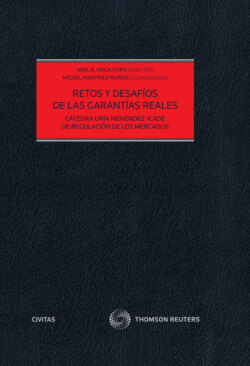Читать книгу Retos y desafíos de las garantías reales - Abel B. Veiga Copo - Страница 19
На сайте Литреса книга снята с продажи.
VII. Cape town convention
ОглавлениеIn assimilating title-based security and true security, Article 9 and its progeny adopt what has been called a unitary approach. Putting aside the exceptional cases of sales of accounts receivable and consignments, the two are treated as though they were the same except that a super-priority position is marked out for purchase money interests, a category that includes title reservation. The Cape Town Convention adopts a most interesting approach when dealing with these two categories. It also bears the marks of a battle between those in favour of a unitary approach and those who would separate title-based schemes and true security at the point of default and enforcement. The Convention does this by cutting across the conceptual division between title and security, treating them both under the bland heading of an “interest”, but then, when dealing with default remedies, treating them differently. The remedies of a conditional seller and of a lessor of equipment are not the same as those of a chargee or other holder of a traditional security interest. The differences are as follows and by no means favour the conditional seller or lessor. The holder of a security interest has the usual remedies of taking possession or control of the asset; selling or leasing the asset to a third party; managing the asset so as to draw down an income stream generated by it96; or (with the debtor’s agreement) having the asset vested in the holder in or towards satisfaction of the secured debt97. On the other hand, the conditional seller and lessor are confined to terminating the agreement and retaking possession or control of the asset that always was their own and that they can now treat as their own without yielding to the possessory rights of buyer or lessee98. Nevertheless, if so permitted by the applicable law or by agreement the remedies of the seller and lessor may be modified99.
A striking feature of the Cape Town Convention, which in one respect takes it past the point of assimilation arrived at in Article 9, lies in its abandonment of a super-priority in favour of a purchase money financier. The explanation is not straightforward. Because the registration scheme of the Convention applies to uniquely identifiable objects, this cuts off at source the possibility of a conflict between an earlier security over after-acquired property catching assets and a later purchase money interest, thus rendering a super-priority rule of the sort favouring a conditional seller or finance lessor unnecessary100. The future asset cannot prior to its existence have a unique identification.
